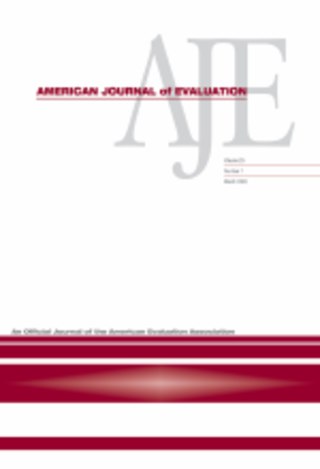Industrial and organizational psychology "focuses the lens of psychological science on a key aspect of human life, namely, their work lives. In general, the goals of I-O psychology are to better understand and optimize the effectiveness, health, and well-being of both individuals and organizations." It is an applied discipline within psychology and is an international profession. I-O psychology is also known as occupational psychology in the United Kingdom, organisational psychology in Australia and New Zealand, and work and organizational (WO) psychology throughout Europe and Brazil. Industrial, work, and organizational (IWO) psychology is the broader, more global term for the science and profession.
Community psychology is concerned with the community as the unit of study. This contrasts with most psychology which focuses on the individual. Community psychology also studies the community as a context for the individuals within it, and the relationships of the individual to communities and society. Community psychologists seek to understand the functioning of the community, including the quality of life of persons within groups, organizations and institutions, communities, and society. They aim to enhance the quality of life through collaborative research and action.

The Tavistock Institute of Human Relations is a British not-for-profit organisation that applies social science to contemporary issues and problems. It was initiated in 1946, when it developed from the Tavistock Clinic, and was formally established as a separate entity in September 1947. The journal Human Relations is published on behalf of the Tavistock Institute by Sage Publications. The institute is located in Gee Street in Clerkenwell, London.
Evidence-based practice is the idea that occupational practices ought to be based on scientific evidence. While seemingly obviously desirable, the proposal has been controversial, with some arguing that results may not specialize to individuals as well as traditional practices. Evidence-based practices have been gaining ground since the formal introduction of evidence-based medicine in 1992 and have spread to the allied health professions, education, management, law, public policy, architecture, and other fields. In light of studies showing problems in scientific research, there is also a movement to apply evidence-based practices in scientific research itself. Research into the evidence-based practice of science is called metascience.
Organizational effectiveness is a concept organizations use to gauge how effective they are at reaching intended outcomes. Organizational effectiveness is both a powerful and problematic term. The strength of it is that it may be used to critically evaluate and improve organisational activities. It's problematic since it means various things to different individuals. And there are other alternative methods for measuring organizational performance. Organizational effectiveness embodies the degree to which firms achieve the goals they have decided upon, a question that draws on several different factors. Among those are talent management, leadership development, organization design and structure, design of measurements and scorecards, implementation of change and transformation, deploying smart processes and smart technology to manage the firm's human capital and the formulation of the broader Human Resources agenda.
Dale Berger is a professor of Psychology, Emeritus, and former Dean of the School of Behavioral and Organizational Sciences (SBOS), Claremont Graduate University in Claremont, California. Berger is a cognitive psychologist and research methodologist with a focus on the use of technology in support of teaching and learning statistics.
D. Lawrence Kincaid is a senior advisor for the Research and Evaluation Division of the Center for Communication Programs and an associate scientist in the Faculty of Social and Behavioral Sciences at the Johns Hopkins Bloomberg School of Public Health.
The American Orthopaedic Society for Sports Medicine (AOSSM) promotes sports medicine education, research, communication, and fellowship and includes national and international orthopaedic sports medicine leaders. The Society works closely with many other sports medicine specialists, including athletic trainers, physical therapists, family physicians, and others to improve the identification, prevention, treatment, and rehabilitation of sports injuries. Formed in 1972 as a forum for education and research with 100 members, the AOSSM today has to more than 2,000 members.
Health communication is the study and practice of communicating promotional health information, such as in public health campaigns, health education, and between doctor and patient. The purpose of disseminating health information is to influence personal health choices by improving health literacy. Health communication is a unique niche in healthcare that allows professionals to use communication strategies to inform and influence decisions and actions of the public to improve health.
Psychology encompasses a vast domain, and includes many different approaches to the study of mental processes and behavior. Below are the major areas of inquiry that taken together constitute psychology. A comprehensive list of the sub-fields and areas within psychology can be found at the list of psychology topics and list of psychology disciplines.
Stewart Clegg is a British-born Australian sociologist and organizational theorist, and a professor at the School of Project Management, University of Sydney. Prior to joining the University of Sydney he was Distinguished Professor of Management and Organization Studies at the University of Technology Sydney.

The American Journal of Evaluation is a peer-reviewed academic journal that covers research on methods of evaluation. It is a quarterly journal and its first publication was in 1981. The co-editors-in-chief are Jori N. Hall and Laura R. Peck.
Empowerment evaluation (EE) is an evaluation approach designed to help communities monitor and evaluate their own performance. It is used in comprehensive community initiatives as well as small-scale settings and is designed to help groups accomplish their goals. According to David Fetterman, "Empowerment evaluation is the use of evaluation concepts, techniques, and findings to foster improvement and self-determination". An expanded definition is: "Empowerment evaluation is an evaluation approach that aims to increase the likelihood that programs will achieve results by increasing the capacity of program stakeholders to plan, implement, and evaluate their own programs."
Human services is an interdisciplinary field of study with the objective of meeting human needs through an applied knowledge base, focusing on prevention as well as remediation of problems, and maintaining a commitment to improving the overall quality of life of service populations. The process involves the study of social technologies, service technologies, and scientific innovations designed to ameliorate problems and enhance the quality of life of individuals, families and communities to improve the delivery of service with better coordination, accessibility and accountability. The mission of human services is to promote a practice that involves simultaneously working at all levels of society in the process of promoting the autonomy of individuals or groups, making informal or formal human services systems more efficient and effective, and advocating for positive social change within society.
Jean J. Schensul is a medical anthropologist and senior scientist at The Institute for Community Research, in Hartford, Connecticut. Dr. Schensul is most notable for her research on HIV/AIDS prevention and other health-related research in the United States, as well as her extensive writing on ethnographic research methods. She has made notable contributions to the field of applied anthropology, with her work on structural interventions to health disparities leading to the development of new organizations, community research partnerships, and community/university associations. Schensul’s work has been dedicated to community-based research on topics such as senior health, education, and substance abuse, among others.
Marvin C. Alkin is an American professor. He is Professor Emeritus of Education at the University of California, Los Angeles. Professor Alkin joined the UCLA faculty in 1964 after receiving his doctorate from Stanford University. He has, at various times, served as Chair of the Education Department and Associate Dean of the Graduate School of Education and Information Studies. He was founder and former Director of the UCLA Center for the Study of Evaluation.

Kathryn Newcomer is an American Political Scientist, author and professor of public policy and public administration. She was previously the director of the George Washington University's Trachtenberg School of Public Policy and Public Administration.

Janice Margaret Morse in Blackburn, Lancs., UK to New Zealand parents. She is an anthropologist and nurse researcher who is best known as the founder and chief proponent of the field of qualitative health research. She has taught in the United States and Canada. She received PhDs in transcultural nursing and in anthropology at the University of Utah, where she later held the Ida May “Dotty” Barnes and D Keith Barnes Presidential Endowed Chair in the College of Nursing at University of Utah,. She is also an Emerita Distinguished Professor at the University of Utah and Professor Emerita at the University of Alberta. She is founder of three journals and created four scholarly book series on qualitative research. She was Founding Director of the International Institute of Qualitative Methodology at University of Alberta, the longest standing research institute on qualitative inquiry in the world.
Marcia Guttentag was clinical social psychologist whose work focused on psychological issues related to children, poverty, women's rights, and mental health. As one of the founders of the Evaluation Research Society, Guttentag is known for being a pioneer in promoting evaluation research as a distinct field of social science. She was an elected Fellow of the American Association for the Advancement of Science.
Huey-tsyh Chen is Professor in the Department of Public Health and Director of the Center for Evaluation and Applied Research at Mercer University. Chen was born in Taiwan. He received his PhD in sociology from the University of Massachusetts, supervised by Peter Rossi.



